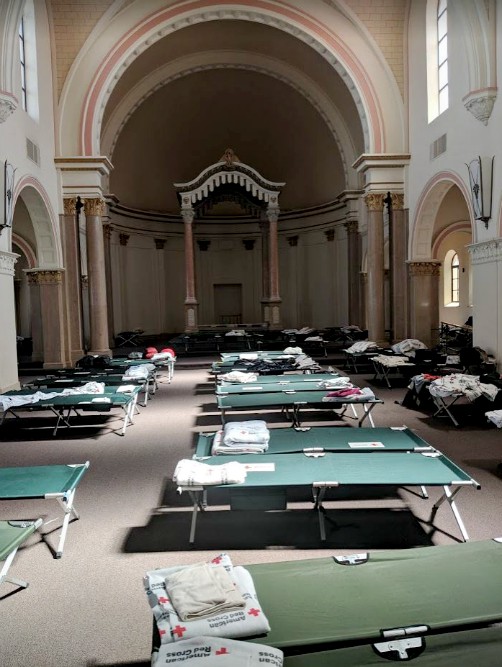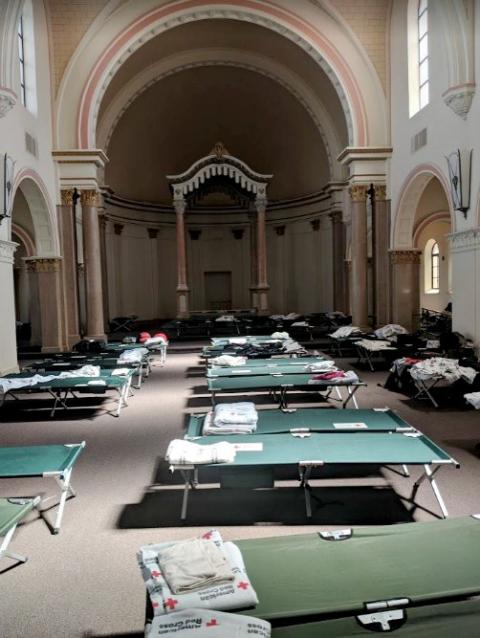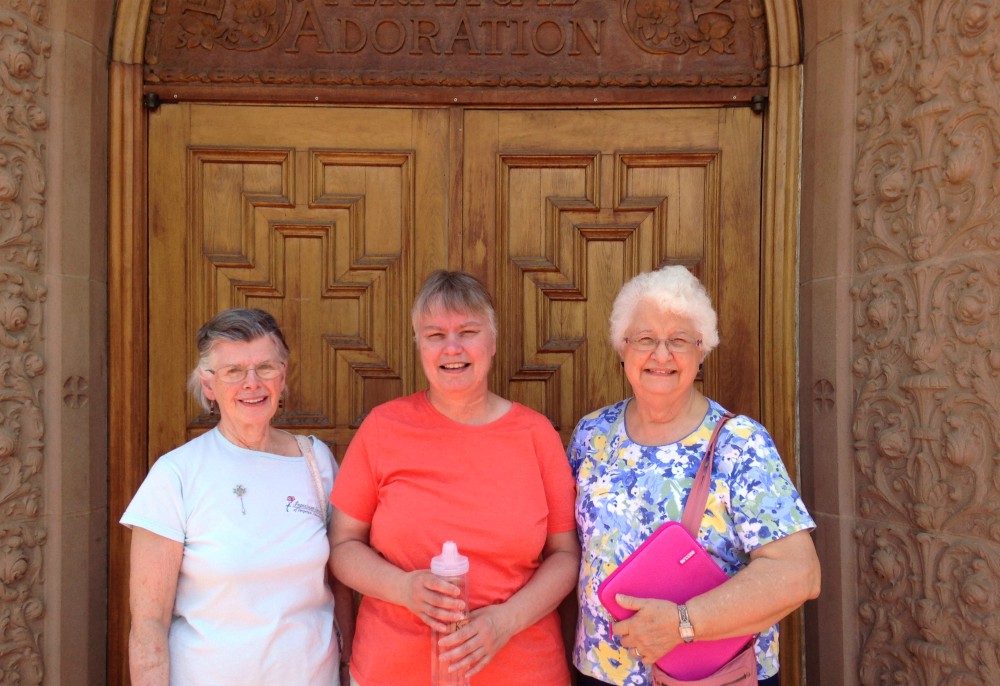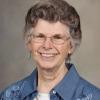
A sanctuary filled with cots for refugees is seen in Tucson, Arizona. (Franciscan Sisters of Perpetual Adoration)

A sanctuary filled with cots for refugees is seen in Tucson, Arizona. (Franciscan Sisters of Perpetual Adoration)
Dry, parched earth, scorched by stifling hot air in the Southwest corner of Arizona — Yuma. Is this the Israel of the United States, Mexico and Central America of today? Could this flow of people be another Exodus in our times? Who is the Moses who will lead them into a safe haven where they can live into their own dignity and feel at home? My heart and soul are entangled with so many questions.
As my three friends and I began our two-week journey here on some of the hottest days of the year (July 8-21), I wondered if the harsh beauty of this land was symbolic of the people we were to meet and their life's circumstances. Weren't these people of our time fleeing from slavery, fleeing from government controls, rejection, poverty, drug violence, climate crises, child trafficking and prostitution — all in search of a better way, a "promised land"?
These same people, holding hopes for freedom and a better life, are also destined to be absorbed into the flow of humanity, perhaps not in a "promised land" but in a strange and (in some places) unwelcoming land.
Many of the refugees (their numbers dwindled in the time we were there) were women and children, either left to flee or to fight the "powers that be" in their own beloved lands. The inner strength and physical stamina of the people who flee are indescribable. The torture of the harsh dry desert, the lack of water, the miles and miles of earth beaten down by many footprints, the loss of any sense of direction, the forbidding sight of that never-ending razor-wired 30-foot-high steel border wall, the constant hunger eating away at their children, questions of security circling in the minds of the parents — these are only a few of the realities these people experience as they journey on, hoping for survival.
Once the families are processed at the border checkpoints, they are given papers confirming their identity and eligibility to enter. To them, these may seem evidences of hope that they will be accompanied by Border Patrol agents and brought to safe havens, where they will be respectfully cared for. But it is becoming more and more difficult even to begin this entrance processing, so the numbers of immigrants crossing fluctuates daily.
How can the eyes and heart of your soul not be touched when you see and experience life outside of your own protected world? To see the big brown eyes and tousled black hair of the tiny children who trusted to sit on a stranger's lap?
We heard "Gracias" repeatedly spoken for the food given to folks who perhaps had not eaten a decent meal in days. I ached to say, "Tell me your story," as I heard the quiet murmurings of mothers patiently waiting for a sponsor's contact, be it a relative, friend or — unthinkable — the drug cartel. Who knows the unspoken fears between fathers and sons as they may face being sucked into drug trafficking in this "promised land?"

From left, Srs. Kathy Roberg, Laurie Sullivan and Joan Weisbenbeck in Tucson, Arizona (Franciscan Sisters of Perpetual Adoration)
Children's perceptions of the harshness and joys of life were expressed in art forms portraying the beauties of nature and love of the Earth, in hopes of beginning to heal what they have experienced. The hallowed walls and halls of a Benedictine monastery, converted into a loving sanctuary for a refugee center named Casa Alitas (house of little wings), has given wings to numerous people, carried them on eagle's wings in God's love.
The parable of the good Samaritan becomes a living reality in knowing that the volunteers of the Green Valley-Sahuarita Samaritans faithfully trudge weekly out into the cruel terrain of the desert, replenishing water jugs at water dropoff spots. They search for lost souls, whether living or those who have left only their remains behind; they pray at designated cross markers for those who have perished there, letting their souls be connected to those who suffered.
Hymns I have sung many times, such as "Blest be the Lord, blest be the Lord, the God of mercy, the God who saves. I shall not fear the dark of night, nor the arrow that flies by day," will forever touch me to tears as I remember what I have seen.
Advertisement
Passages from Exodus, relating how Moses led the Israelites through the desert, were the daily readings for the liturgy during this time in Arizona. History continues to repeat itself in the flowing rivers of people fleeing from oppression and life-threatening conditions throughout the world.
The challenge for me is: How will I allow this to impact my life, my attitudes, my relationships, my Gospel living? The immigration concern is a complex issue and makes me wonder where and how I can make a difference. Moses hesitated when he was called to lead the suffering people into a land of freedom, but he allowed himself to be led, trusting in an unknown power — God.
Are we not called — as we hear the cries of the suffering right now — to step forward and trust in that same God who holds these people who are in exodus today so very close to his heart? Are we the "Moses" in this exodus of our times, who will allow our hearts to be touched by those cries, who have the courage to step forward and speak out for those who have no voice, as they search for a life that will give them dignity?
[Kathy Roberg is a Franciscan Sister of Perpetual Adoration. Currently living in Spokane, Washington, she serves immigrants, women and children, and homeless people, and volunteers at the Women and Children’s Free Restaurant and Community Kitchen.]





